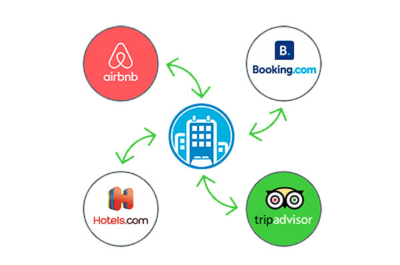Offering large incentive discounts in exchange for immediate payment is a tactic used by a growing number of suppliers as they look to optimize their inventory.
ATLANTA – The trend for immediate payments is causing U.S. agencies to look for alternative payment methods, exclusive research commissioned by eNett International revealed yesterday. World leading market research company, Euromonitor, interviewed travel agencies across the U.S., unveiling four key payment challenges caused by trends in the industry, that are driving agencies to re-assess their supplier payments strategies.
Offering large incentive discounts in exchange for immediate payment is a tactic used by a growing number of suppliers as they look to optimize their inventory. For agencies, leveraging immediate payment discounts are a big part of remaining profitable, with the research revealing travel agencies using credit cards to pre-pay and secure the best deals. However, this has led to issues with agencies reaching card limits and having to obtain senior management authorization.
Another challenge agencies are contending with is international payment. Greater volumes of international leisure and business travel from the U.S. has seen an increase in cross-border payments. Wire transfers have been the default solution, but transaction fees, which respondents cited to be as much as US$351 a time, are pushing up the cost of international payments significantly.
Other findings showed U.S. agencies looking to automate data reconciliation. When an agency is paying for multiple trips via the same credit card, reconciliation of card statements can be extremely time-consuming. This is particularly acute for travel management companies, who need to give their corporate clients accurate invoices and detailed reports. Interoperability between differing payments and booking platforms is critical to addressing this, as is data matching at the point of sale.
Fraud remained a top concern for agencies, with protection from card fraud a high priority when it came to selecting a payment solution. The findings showed that the wealth of legislation to tackle card fraud, is itself causing agencies problems. For example, once the initial payment is made, some agencies aren’t permitted to store travelers’ credit card details in their systems. This means card details must be taken again to pay for any extras, causing negative customer experiences.
eNett Managing Director and CEO, Anthony Hynes, said, “We undertook the research to inform us of the challenges agencies are facing in the U.S. travel payments landscape today. It is clear agencies are being driven to find alternative payments solutions that enable them to work with distributors anywhere in the world, while protecting them and their customers from fraudulent transactions. The U.S. travel industry is ready to embrace real change in the way they make supplier payments, and innovative payment solutions like Virtual Account Numbers (VANs) will be at the forefront of this change.”
A VAN is an automatically generated 16-digit number used for supplier payments and can include payment parameters such as amount, currency, date and merchant, making it a more secure way to pay or be paid. It delivers reduced risk from fraud and supplier default, automated payments and reconciliation, and value back through rebates2.
Tatiana is the news coordinator for TravelDailyNews Media Network (traveldailynews.gr, traveldailynews.com and traveldailynews.asia). Her role includes monitoring the hundreds of news sources of TravelDailyNews Media Network and skimming the most important according to our strategy.
She holds a Bachelor's degree in Communication & Mass Media from Panteion University of Political & Social Studies of Athens and she has been editor and editor-in-chief in various economic magazines and newspapers.

































































































































































































